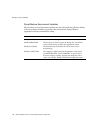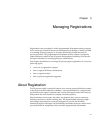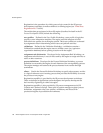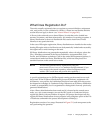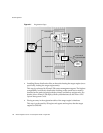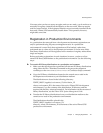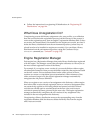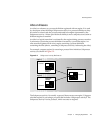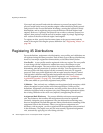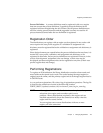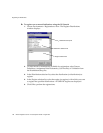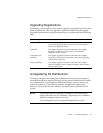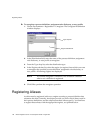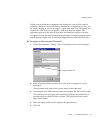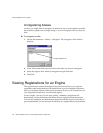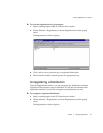Registering iIS Distributions
144 iPlanet Integration Server • Process System Guide • August 2001
If process1 and process2 hard-code the reference to process3 on engine3, then
process3 could not be moved to another engine without modifying both process1
and process2 in the Process Definition Workshop, creating the respective library
distributions, and re-registering the process definitions with both engine1 and
engine2. However, if process1 and process2 use an alias to reference process3 on
engine3, then process3 could be moved to another engine by simply registering a
new version of the alias with both engine1 and engine2.
To register an alias, specify the alias name (same as the process name) and the
name of the engine executing the process definition. See “Registering Aliases” on
page 148.
Registering iIS Distributions
Process definitions, assignment rule dictionaries, user profiles, and validations are
all registered using the same procedure. Each of these types of library distributions,
however, has unique registration characteristics, as described briefly below:
User Profile A user profile must be registered with every engine. The user profile
is used along with the validation to authenticate users who attempt to open
sessions with the engine. The user profile is also used by assignment rules in
determining who has permission to perform activities. You can register more than
one user profile with each engine, but this is normally done only for upgrade
purposes. Each user profile registered with an engine must be uniquely named.
(An upgraded validation and upgraded assignment rule dictionary, consistent
with the upgraded user profile, must also be registered—see “Performing
Application Upgrades” on page 153). You cannot register an upgraded user profile
of the same name as a previously registered user profile.
Validation One, and only one, validation can be registered with an engine, which
allows the engine to open sessions with client applications. Unlike process
definitions, assignment rule dictionaries, and user profiles, there can be only one
validation registered with an engine at any time. Subsequent registrations replace
the existing validation with a new one (implicitly unregistering the old one).
Assignment Rule Dictionary If a process definition references an assignment
rule, the dictionary that contains that assignment rule must be registered.
Generally, designers group assignment rules into dictionaries containing more
than one assignment rule and then generate library distributions containing all the
assignment rules in the dictionary. When you register an assignment rule
dictionary with an engine, you have registered all the assignment rules contained
in the dictionary. The engine uses only the most recently registered assignment
rule, retroactively applying it to all existing activities.



